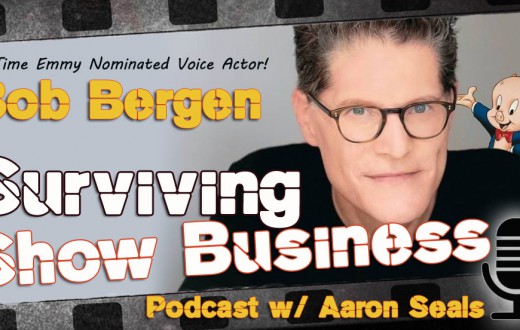When it comes to children in show business, parental involvement is crucial for their success and well-being. However, finding the right balance between being an advocate and being overbearing can be challenging. While parental guidance is essential for navigating the complex entertainment industry, it’s equally important to respect a child’s individual journey and foster their independence. In this article, we’ll explore the importance of parental involvement in children’s show business, discuss the potential pitfalls of overbearing behavior and provide valuable insights on striking the right balance for the benefit of the child.
Establishing Open Communication
Effective communication is the foundation of healthy parental involvement. Parents should maintain open and honest lines of communication with their child, allowing them to express their thoughts, concerns, and aspirations. This includes actively listening to their child’s desires and dreams, as well as providing guidance and support based on their understanding of the industry.
Educating Themselves about the Industry
Parents who actively educate themselves about the entertainment industry can better support their child’s endeavors. This involves understanding the intricacies of auditions, contracts, working conditions, and legal requirements. By becoming knowledgeable about the industry, parents can provide informed advice and advocate for their child’s rights and well-being.
However, it’s important for parents to strike a balance between being well-informed and overwhelming their child with industry-related details. Parents should filter information appropriately, sharing relevant aspects while shielding their child from unnecessary stress or pressure.
Encouraging Autonomy and Independence
While parental guidance is valuable, encouraging autonomy and independence assists in the child’s growth and development in show business. Parents should support their child’s decision-making process, allowing them to explore their own interests and make choices based on their passions. This involves respecting their child’s opinions, aspirations and boundaries.
By allowing their child to participate in decision-making processes, such as choosing auditions or roles within reasonable limits, parents can give them a sense of control and accountability in their career path. This approach also helps the child acquire the skills required to navigate the entertainment industry on their own.
Balancing Advocacy with Allowing Natural Consequences
As advocates for their child, parents play a crucial role in safeguarding their best interests. However, it’s equally important to strike a balance between advocacy and allowing natural consequences to occur. Shielding a child from all disappointments or failures can hinder their personal growth and resilience.
Parents should guide their child through challenges and setbacks, helping them develop coping mechanisms and problem-solving skills. By allowing natural consequences, children can learn from their experiences and develop the resilience needed to thrive in the industry.
Collaborating with Industry Professionals
I talk about this a lot. Collaborating with industry professionals can provide a well-rounded support system for both parents and children. This includes engaging reputable agents, managers, coaches and mentors who have the expertise and experience in guiding young performers. These professionals can offer valuable insights, industry connections and support networks to navigate the complexities of show business.
Parents must play an active part in their child’s career and guarantee that professionals uphold their child’s welfare and limits. It’s crucial to create open lines of communication with these professionals, encouraging a collaborative strategy that puts the child’s welfare first.
Example of an Overbearing Parent
An example of an overbearing parent in show business is the fictional character of “Emily”. Emily is a passionate and determined mother who wants her child, “Sarah,” to achieve stardom in the entertainment industry. However, her overbearing nature often crosses the line and becomes detrimental to Sarah’s well-being.
Emily constantly pressures Sarah to succeed, pushing her to auditions, rehearsals, and acting classes without considering her child’s own desires and interests. She micromanages every aspect of Sarah’s career, making decisions without consulting her or considering her input. Emily becomes obsessed with Sarah’s success, making it the sole focus of their lives and neglecting other important aspects such as education and personal development.
Additionally, Emily excessively criticizes Sarah’s performances, creating a constant atmosphere of stress and self-doubt. She fails to acknowledge Sarah’s accomplishments and is always demanding more, causing Sarah to lose her passion for acting and develop a fear of failure.
Moreover, Emily becomes confrontational with industry professionals, demanding preferential treatment for Sarah and causing tension on set. She often disregards the boundaries set by directors, producers and other professionals, causing disruptions and hindering Sarah’s professional relationships.
In this example, Emily’s overbearing behavior hinders Sarah’s growth and well-being. Her constant pressure, lack of respect for boundaries, and neglect of Sarah’s individual desires and needs create a toxic environment that hampers Sarah’s potential for genuine success and happiness in the industry.
I could go on and on about overbearing parents, so I’ll continue because it doesn’t just apply to show business, but to the “real world” as well.
When parents become overbearing, constantly pressuring their children to achieve success, it can lead to significant consequences. Children may experience increased stress, anxiety and a diminished sense of self-worth as they constantly strive to meet their parents’ expectations. This pressure can hinder their emotional and psychological development, leading to burnout, lack of enjoyment and a diminished passion for their chosen field.
Overbearing parents often neglect their child’s individuality, interests, and desires. By exerting excessive control over every aspect of their child’s career, these parents stifle their child’s creativity, personal growth, and independence. The child may lose sight of their own dreams and aspirations, succumbing to the relentless pursuit of their parents’ goals and desires.
Ultimately, parental involvement should be a source of guidance, support and empowerment, rather than control and dominance. By striking the right balance, parents can create an environment that nurtures their child’s development, passion and long-term success in the world of show business.







